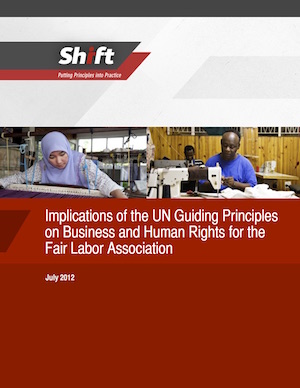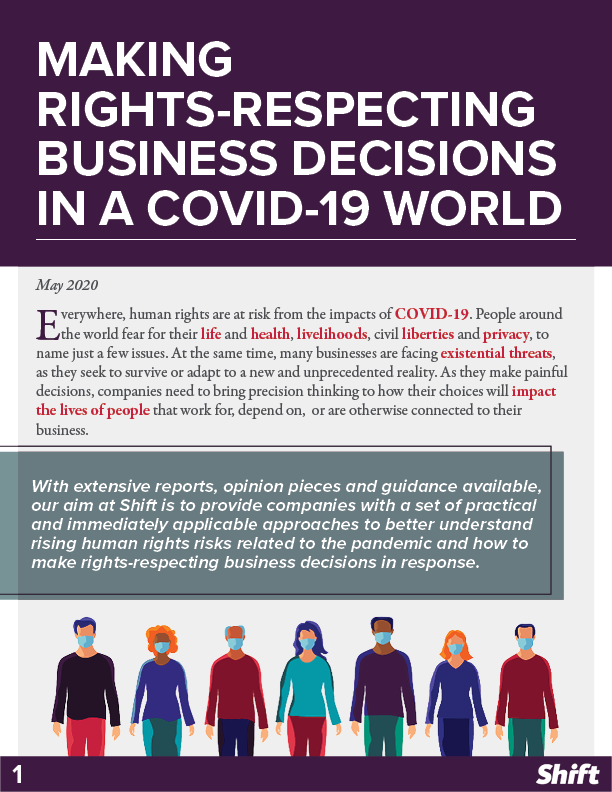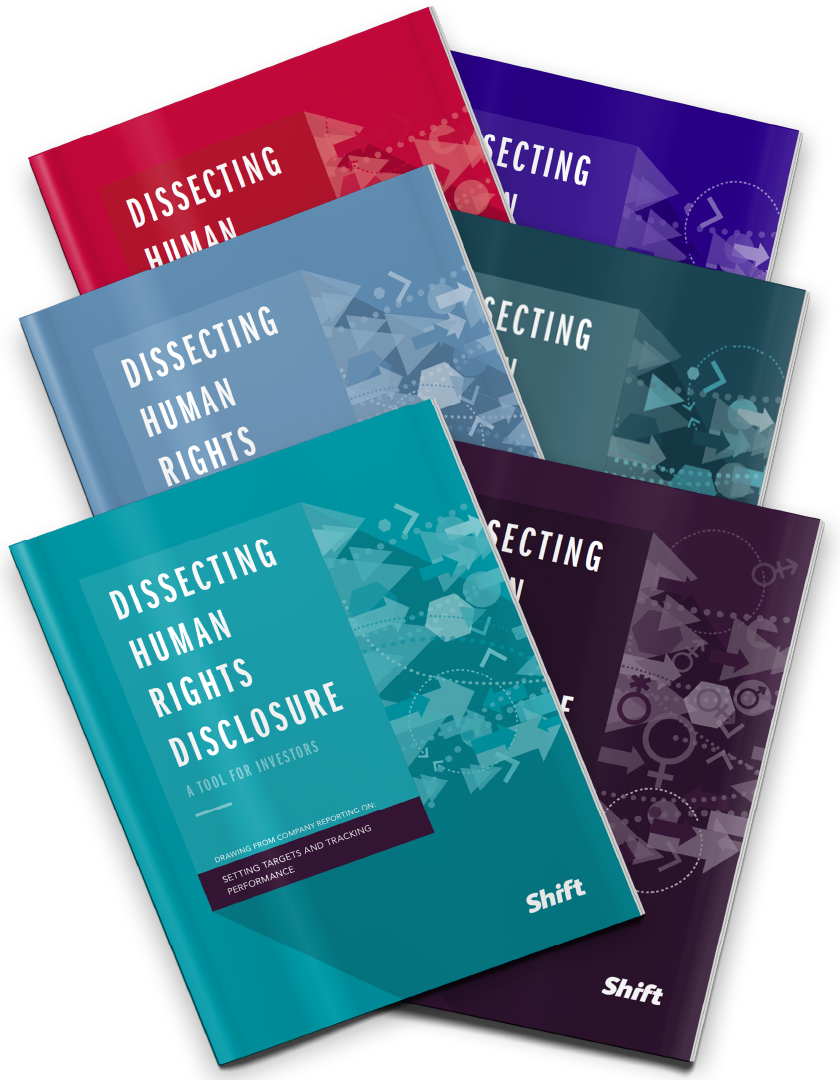Since this analysis was published in 2012, the FLA has made a number of changes to its standards and processes. | Also see our Collaborations page on this work
Summary
Following the adoption of the Guiding Principles in 2011, the Fair Labor Association (FLA) asked Shift to conduct a review of the implications of the Guiding Principles for its own work. Established in 1999, the FLA is a collaborative effort of universities, civil society organizations and socially responsible companies dedicated to protecting workers’ rights around the world.
The review was conducted through a high-level desk-based analysis of the FLA’s written policies and procedures, its programs, complaints mechanism, governance structures, and information on its website portal to identify correlations, strengths and weaknesses with regard to the Guiding Principles.
The review focused on the second pillar of the Guiding Principles – the corporate responsibility to respect human rights. This focuses on the kinds of policies and processes that a business needs to have in place in order to ensure that it avoids infringing on human rights and addresses any adverse impacts with which it is involved.
This review is not an assessment of the impact of the FLA’s work on the lives of workers; nor is it an assessment of how far company participants in the FLA meet the Guiding Principles. Rather, it focuses on what the FLA itself requires of its Participating Companies and how it knows and shows whether they meet those requirements in practice. The review sought to take into account new developments in the FLA’s evolving approach to the improvement of labor standards.
There are many ways in which the FLA’s policies, processes and practices are well aligned with the Guiding Principles. The revised Workplace Code of Conduct provides a clear set of labor rights outcomes, in line with international standards, and the Principles of Fair Labor and Responsible Sourcing closely parallel the Guiding Principles’ six core requirements regarding a policy commitment, four due diligence steps and remediation processes. The inclusion in the Principles of Fair Labor and Responsible Sourcing of key aspects of purchasing/sourcing practices is notable in filling a previous gap with regard to embedding respect for human rights across all relevant company departments.
Also noteworthy is the FLA’s recent move away from pure compliance auditing towards the incorporation of more root cause analysis and capacity building approaches, aimed at more effective and sustainable mitigation of risks to workers’ rights. The FLA has strong verification and reporting practices with regard to Participating Companies’ suppliers, and provides considerable transparency through the publication of its independent monitoring/assessment reports. Transparency has also been a strong feature of the FLA’s Third Party Complaints mechanism, which has achieved some notable remediations of complex labor rights impacts over the years. The FLA also has a strong set of commitments and practices regarding stakeholder engagement.
In order to achieve further alignment with the Guiding Principles, Shift recommends that the FLA:
- improve its ability to track the performance of Participating Companies with regard to the Principles of Fair Labor and Responsible Sourcing, including by helping Participating Companies develop the capacity to know and show that their own activities (including sourcing/purchasing decisions) are consistent with respect for human rights.
- pay particular attention to the role that performance incentives for staff making purchasing decisions play in driving respect for labor rights compliance in the supply chain. Participating Companies could be requested to include information on this in their annual reporting to the FLA.
- define a process for coming into line with its own Charter commitments with regard to reporting on the performance of Participating Companies, and keep external stakeholders appraised of its plans and progress in this regard.
- clarify the grievance mechanism requirements in the Workplace Code, including with regard to what makes for an effective grievance mechanism. This might be elaborated in supporting materials to the Code and based on Guiding Principle 31.
- provide greater clarity on what Participating Companies should themselves provide by way of grievance reporting channels for workers, with due allowance for their varying resources and capacities.
- ensure a full description of the FLA’s Third Party Complaints process is again made available on its website in key languages, pending the completion of the current review process.
- ensure that the FLA Charter is updated to be consistent with revised FLA policies and principles, and keep stakeholders appraised via its website and other communications of current or future FLA reforms.
The FLA might also consider:
- Discussing with Participating Companies the extent to which they apply the same standards to their corporate employees as they expect their suppliers to apply to workers, and the implications of any discrepancies for the FLA’s mission.
- Using the move to its new Sustainable Compliance program to promote more explicitly the development of human rights due diligence processes at the suppliers of Participating Companies, and sharing the learning about how to achieve this in a small factory setting.
- Providing clearer timelines and pathways for smaller licensees to meet the full range of FLA standards in a manner appropriate to their resources and human rights impacts, to avoid the risk of these companies having de facto exemptions from provisions that are integral to the Guiding Principles.




